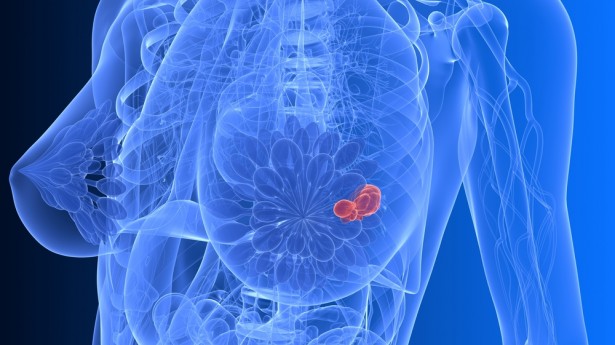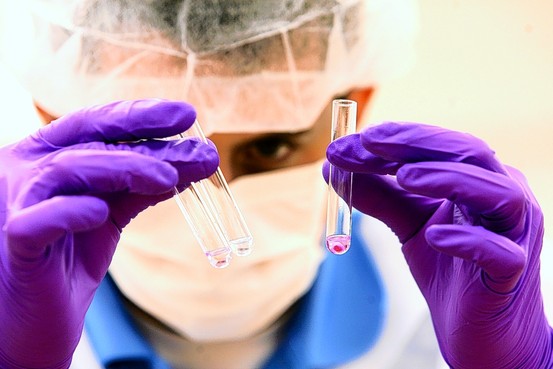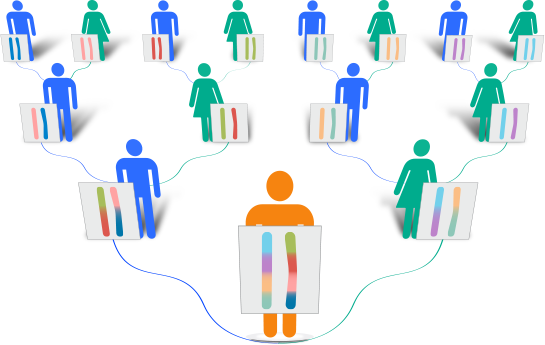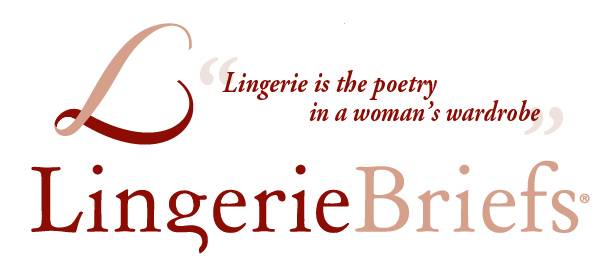Seven Genes towards the Cure and Counting
by JEAN CRISS

I am a true believer in Genetic Counseling. I had my first genetic testing after I conceived my first child, and then again with my second child with amniocentesis; a very common and known procedure for women over 35 who conceive later in life. This is when a small sample of the amniotic fluid which protects the fetus from injury and helps to regulate the temperature is taken. These cells contain genetic information that can be used to diagnose chromosomal disorders and what is called open neural tube defects (ONTDs), such as spinal bifida. (Testing is available for other genetic defects and metabolic disorders depending on the family history and availability of lab testing at the time of the procedure). Then when I underwent these needle biopsies to be specifically tested as a carrier of the MS genetic disorder, I was scared out of my mind. Since I married into a family with this genetic history and I later learned the gene typically skips a generation, the test was still being recommended to me by my physician. I basically sucked it up and took the test – bare belly and all.
The Genetic Counselor who guided us through the process at that time was kind and knowledgeable. She explained the implications of the disease and how it could potentially affect me and my future children’s children. My husband’s family had numerous aunts and uncles who unfortunately had this genetic disorder and struggled with it for years till they passed at various ages. So we wanted to know our odds. Then later in life, I underwent my third genetic test for Breast Cancer once I was diagnosed, a very similar procedure with long needles and waiting period to identify the biopsy test results.
Diagnosis and what you should know. This procedure I had was called the BRCA1 and BRCA2 genetic blood test and is a commonly known diagnosis for breast cancer along with traditional mammograms and digital MRIs. Once I found out I had bi-lateral DCIS, the most common form of non-invasive breast cancer with over 60k new cases in the U.S. each year, I was relieved to learn my outcome. The test results were negative and this was the first step to identify my family history of the disease. The next steps were to simply remove the tumors and I chose a bi-lateral lumpectomy with radiation treatments as the least invasive procedure to manage this stage of recovery for my breast health and wellness.
Breast cancer is often first suspected when a lump or a change in the breast is found, or perhaps, an abnormal area was seen on your mammogram. Most of the time, these findings don’t turn out to be cancer. But the only way to know for sure is through follow-up tests. Some things you can do to be better informed and prepared when seeing your physician is to ask proper questions about your health and wellness. Learn more about testing, how the tests affect your diagnosis, prognosis and treatment. A simple way is to do some quick research. You may refer to my list of Breast Cancer Resources Guide found on pages 225 – 230 in BLISS!

When I was diagnosed, there were only two known mutations , the BRCA 1 and BRCA2 genes as noted. These expensive blood tests (Est $2,000) were paid for through my medical health insurance and I was grateful for that. About two weeks later, the results from the OncoDX organization informed me that my form of breast cancer I had was not hereditary based on my family history. Perplexed to say the least, I still did not know the main reason or cause of why I got bi-lateral breast cancer. It was then suggested that when my daughter turns 20 years of age, she should be tested for these mutations as precaution during her annual CBE (Clinical Breast Exam) screening and prevention. She was only 10 years of age when I was diagnosed – something you aren’t really thinking about when you receive your diagnosis.
My family history of the disease included an Aunt on Mom’s side and a Grandmother on my Dad’s side, basically not a direct blood relative identified to carry the genes on either side of the family. Over the years, there has been much more progress made to identify and discover new mutations. Now the known gene mutations of familial breast cancer risks identified by GeneDX include BRCA1 and BRCA2 which identifies breast and ovarian cancer syndrome, CDHA for hereditary diffuse gastric cancer syndrome, PTEN harartoma tumor syndrome, STK11 Peutz-Jeghers syndrome, and TP53 Li-Fraumeni syndrome, as well as PALB2, so our odds have increased for survivors. All the breast, that’s just great!
As many of you know, October is breast cancer awareness month and this means increased awareness for both women and men. While all these acronyms may sound like alphabet soup to most of us, they have much more meaning to you, your ancestry, and more. You can learn how to find out if you carry the disease and can do something about it. With a simple blood test or an oral rinse, that’s right, your doctor may be able to inform you if you are at genetic risk and are able to identify early detection as your best protection.

Other forms of testing include mammograms and self-exams which continue to be important forms of breast cancer diagnosis. Over the years millions of dollars that have been generously donated to this cause that affects millions of women and men each year and research has continued to advance. In fact, breast cancer in general affects 1 in 8 women or 12% in their lifetime and 5 – 10% of cases are thought to be of a hereditary predisposition. Breast cancer also affects 1 in 1000 or 1% of men.
The features suggestive of a hereditary cancer predisposition include;
- Young age diagnosis (before age 50)
- Multiple primary cancers in a single individual
- Diagnosis of a cancer type that is not common in the general population (such as ovarian cancer, male breast cancer or pancreatic cancer)
- Several relatives affected with related cancers spanning multiple Gens
My physicians were unique and specialists as Cancer Genetic Counselors. Most cancers are not inherited; however, in 5% to 10% of families there might be a genetic predisposition for certain cancers. A consultation with a genetic counselor can provide the opportunity to estimate the risk of cancer based on:
- Maternal and paternal family histories
- Age(s) when cancer was diagnosed
- Ethnicity
- Clustering of related cancers on either side of the family
A Genetic Counselor is experienced in risk assessment and options for families who might have a predisposition for breast/ovarian cancer, colon cancer, or any other cancer that might be inherited.

One of my physicians from a division of Sloan Kettering also informed me that the BRCA 1 and BRCA 2 test results were not only negative but the ONCO Dx blood test proved if I had been administered “chemo” it would have been harmful to me due to the type and stage 0 and 1 breast cancer I had. Yet, this was still being recommended. I decided that I needed to dive in deep and quickly. Again I did my own research just in time to realize that the test result readings were not all stacked up to what I had thought. What I mean is that I did not agree with my physicians recommendations. The Genetic Counselor’s test results were passed along to my Oncologist and I disagreed with both of them. The “traditional” test results suggested “chemo”. However new findings suggested otherwise, or “no chemo”. Who knew?! Being the media/tech persona that I am, I was not only intrigued by the new stats, I wanted my “top DOCs” to embrace this new data that I found and to allow me my wishes. I consulted with other Top Oncologists who agreed with these findings even though the test was not yet FDA approved. Basically, the results at that time showed the size of tumors, stage of cancer, location of tumor, family history, etc. and while all the data suggested that having chemotherapy would have been more “harmful” to my body with the lower stage of cancer, they were required to inform me otherwise. Based on traditional therapy for bilateral breast cancer, chemo was being recommended. (Keep in mind, I already had undergone radiation with bi-lateral lumpectomies as well).
Bottom line – my body, my decision. So I threw out the books and old research and went with my gut. I ignored my Oncologist, Genetic Counselor, Breast Surgeon, and my X-husband and took a chance. It was my life to gamble with right? I consulted with many top physicians within a short amount of time and felt confident with the fast and new trending research. As a newbie I knew I was going up against well-renowned medical physicians and the disagreement was not welcome. In fact, this was a big decision as I already endured many surgeries to-date and treatments. I felt like a rebel fighting cancer and all alone in this new world of breast health and wellness. I’m not certain if it was my family medical upbringing, tenacity, media and tech background or simply curiosity to ensure I was receiving the proper care, but I just wanted to make sure I had the right solutions for my diagnosis. It was my breast health and awareness that I was contending with and that’s all that mattered. Believe it or not, just a few months afterwards, the FDA proved this theory and those with the same Stage cancer I had were no longer being recommended “chemo”! I was exhilarated to learn that my breast decision was the right one for me. When I opted out of chemo I also changed Oncologists. I took a five-year oral drug therapy (Tamoxifen) to prevent the re-occurrence of breast cancer and my blood stats proved well. I loved the new Doc I chose and ever since then, I have never regretted any of my decisions to-date! My life has been pro-longed without chemo.
To all my sister and brother survivors, friends and colleagues, do your own research as I document in BLISS! The genetic testing in my opinion saved my life as did my own gut and perseverance to learn and stand up for myself with knowledgeable breast health and wellness, and self-educated research.
I continue along that proud path with other breast health decisions and am happy to proclaim I am a healthy 8-year survivor! Be aware of your breast health awareness and don’t let CANCER get the breast of you! I didn’t – I won’t – and I will continue to fight back and persevere!
You can learn more about cancer screening and prevention recommendations for individuals with family history and gene mutations at www.nccn.org and www.oncodx.com and www.genedx.com. The OncoDx test along with BRCA1 and BRCA2 tests are two tests that I highly recommend for breast cancer screening and prevention. Additional breast cancer awareness tips can be found here and don’t forget to do your monthly BSE – Breast Self Exam. It can save your life!
All the breast!


Thank you Clare for sharing your story. As difficult as any disease or health issue may be I feel that an open discussion with family members is so important especially if there is a potential for future carriers. We all know that we are born from within and knowing our family history can save lives. Stay connected and informed and be the shining star. Lead those discussions with others whether it be over coffee or a holiday dessert. Your conversation will be cherished. All the breast, Jean
By the way, Clare, a great resource for families open 24/7 online or by chat is the Cancer Care Resource Team of Experts. http://www.cancercenter.com/ctca-difference/expert-team/‘
Thank you so much for sharing your genetic story with us. What you have shared is so important. When you said that your daughter was 10 when you were diagnosed, that statement jumped off of the page at me.
In my family, there is NOW a long history of severe colon disease. My mom was diagnosed with Colon Cancer at 56 and died at 62. When her children started having children (her grand-kids) she was the only one in the family who’d had colon disease–that we knew of.
Little did we know that we ALL would develop some form of serious colon health issues. Colon Cancer, Crohns, Colitis, polyps, etc. Colon issues were just not discussed. Anything to do with bodily functions was a taboo topic and it was never brought up.
Looking back, we can now see how those “bathroom” illnesses affected so many family members.
There were no tests for Colon Cancer or colon genetic issues when my mom’s grand-kids were born.
There are some now, and I think our taking these tests and finding out what we may be passing onto the next generation is so important. It turns out that we have passed onto our children not only the beautiful family silverware, but the potential for colon disease, also. Being for-warned is so important.